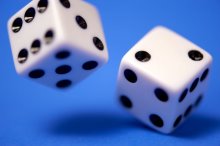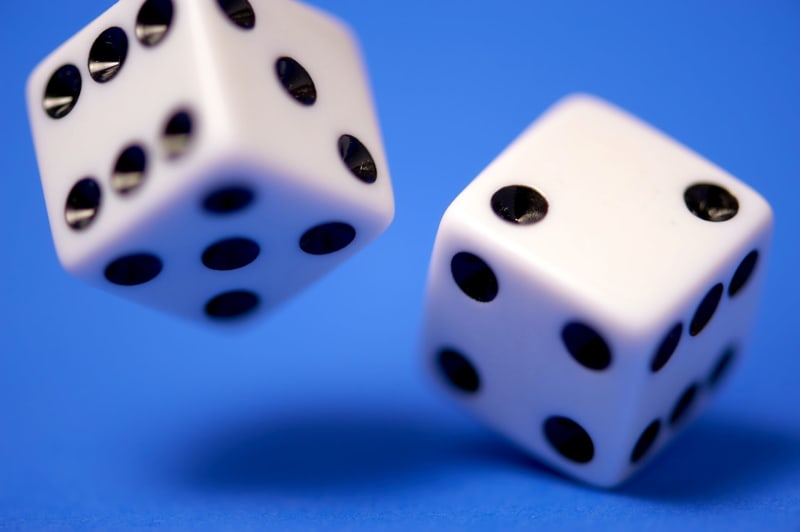
In a recent evening meeting of the Euler Society (Lower Sixth Maths Society), seven Lower Sixth Further Mathematicians and Mathematician considered the game of ‘Pig’, a new game to most of those present.
A very simple game, a player rolls a pair of dice, adding the two scores from each roll and summing each score as the dice are rolled one time, two times, three times and more, with the player choosing when to finish their turn and bank their total. The winner is the first to reach 100.
The catch is that, on any turn, if either dice rolls a six, the score for that turn becomes zero and nothing is added to the total in the bank. After the initial rounds, with players trying to bank high scores, the players refined their techniques to bank more modest scores and worked their way up towards the 100 mark more slowly.
From here the Society turned their thoughts to developing a mathematical model that would reveal the optimum number of rolls per turn and to this they turned to Probability Theory.
Mr Fergus Yuille, Society Organiser, said: “We first considered the simple model of rolling a single dice and found the expected (average) value per roll assuming that a ‘6’ wasn’t rolled. The possibility of rolling a ‘6’ was then taken into account and the expected score for one roll, for two rolls, for three rolls and then generalised for ‘n’ rolls.
“From here we moved onto the more involved scenario of expected scores when two dice are rolled, as in our game. We managed to clear some misconceptions and as a Society agreed on the expected score being 6n where ‘n’ is the number of rolls.
“We found that the expected scores increased up to three rolls after which it decreased, concluding that consistently taking three rolls per round would optimise your score.”
If time had allowed the Society would have considered what strategy would be most effective if one could choose not only how many times to roll the dice, but also how many dice to roll, but sadly the hour had gone. It had been an hour of mathematical thinking and collaboration in a convivial atmosphere (including snacks), culminating in the successful application of the right maths to the problem at hand.
The Society looks forward to its next meeting after Christmas, Covid restrictions depending!




















